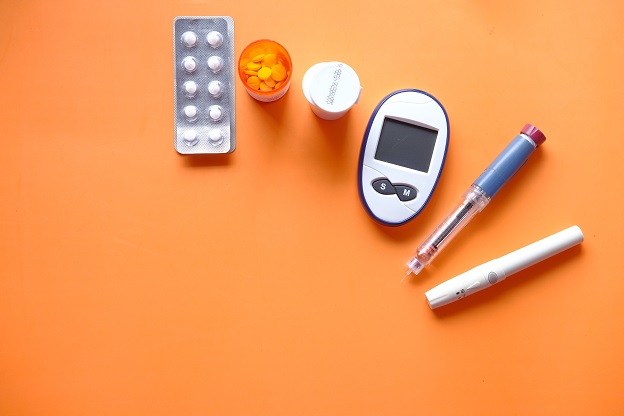9,2
/10
customer satisfaction

We previously wrote an article about glucose. Glucose is closely related to insulin, which we discuss in this article.
Many know insulin especially in relation to diabetes type 1 & 2 patients. However, it is also important to know more about it if you are not a diabetes patient. We explain this in the section on insulin resistance.
Insulin is a hormone produced by the pancreas that allows your body to use carbohydrate sugar (glucose) from the foods you eat for 1) energy, or 2) to store glucose for future use (glycogen). See also our article on glucose. Insulin helps prevent your blood sugar from getting too high (hyperglycemia) or too low (hypoglycemia).
On average, your blood sugar level is around 5 mmol/L (milimoles per liter), which is roughly the amount of sugar in a sugar cube.
The cells in your body need sugar for energy. However, sugar cannot get directly into most cells. After you eat and your blood sugar rises, cells in your pancreas (known as beta cells) are used to release insulin into the bloodstream. Insulin then attaches to these cells and signals to absorb sugar from the bloodstream. Insulin is often compared to a “key” that unlocks the cell so that sugar can enter the cell to provide energy
If you consume more sugar and/or carbohydrates than you need, insulin helps store the sugar in your liver and release it when your blood sugar is low. Or if you need more sugar, such as between meals or during activities such as sports (but also during stress). Therefore, insulin helps balance blood sugar levels and keep them within a normal range. When blood sugar levels rise, the pancreas secretes more insulin.
When the stores for sugars stored in the form of glycogen (in the liver and muscles) are full, insulin will regulate that these sugars are converted into fats.
When your body doesn’t make enough insulin or your cells are resistant to the effects of insulin, you can develop hyperglycemia (high blood sugar). This can cause long-term complications if blood sugar levels remain high for a long time.
People with type 1 diabetes cannot make insulin because the beta cells in their pancreas are damaged or destroyed. Therefore, these people need insulin injections to help their bodies process glucose and prevent complications from hyperglycemia.
People with type 2 diabetes do not respond well or are resistant to insulin. They may need shots of insulin to better process sugar and avoid long-term complications from this disease. Individuals with type 2 diabetes may first be treated with oral medications, along with a change in diet and exercise. Since type 2 diabetes is a progressive condition, the longer a person has it, the more likely a person will need insulin to maintain blood sugar levels.
Insulin resistance is closely related to obesity; however, it is possible to be insulin resistant without being overweight or obese.
Summarizing from above: insulin’s job is to get body cells to take up glucose as fuel, or to store it in the form of body fat.
It also means that glucose builds up faster in the blood and this can lead to high blood sugar.
When the body becomes resistant to insulin, it tries to cope by producing more insulin. People with insulin resistance often produce too much insulin compared to healthy people. Ultimately, the body cells that have to absorb the fuel become resistant to these amounts of insulin.
Producing too much insulin is known as hyperinsulinemia.
Initially, insulin resistance shows no symptoms. The symptoms only begin to appear when they lead to secondary effects, such as higher blood sugar. When this happens, the following symptoms may develop:
Other symptoms that are common in people with insulin resistance include:
Insulin resistance can progress to prediabetes or type 2 diabetes.
Although the exact cause of insulin resistance is still not fully known, it is known which factors can lead to the development of insulin resistance.
Insulin resistance can usually develop if one or more of the following factors of application are:
Insulin resistance mainly occurs in the body when there is:
It is certainly possible to reduce the effects of insulin resistance and there are a number of effective ways to do it.
Effective methods include:
These methods work in a similar way as they all help to reduce the body’s need for insulin and help people lose weight.
We are not doctors, so we always recommend seeking medical advice (via your GP). Your doctor can determine whether there is actually insulin resistance and a raised blood sugar level.
If this is the case, it is possible to structurally adjust your diet. Our nutrition specialists are happy to help you with this.
